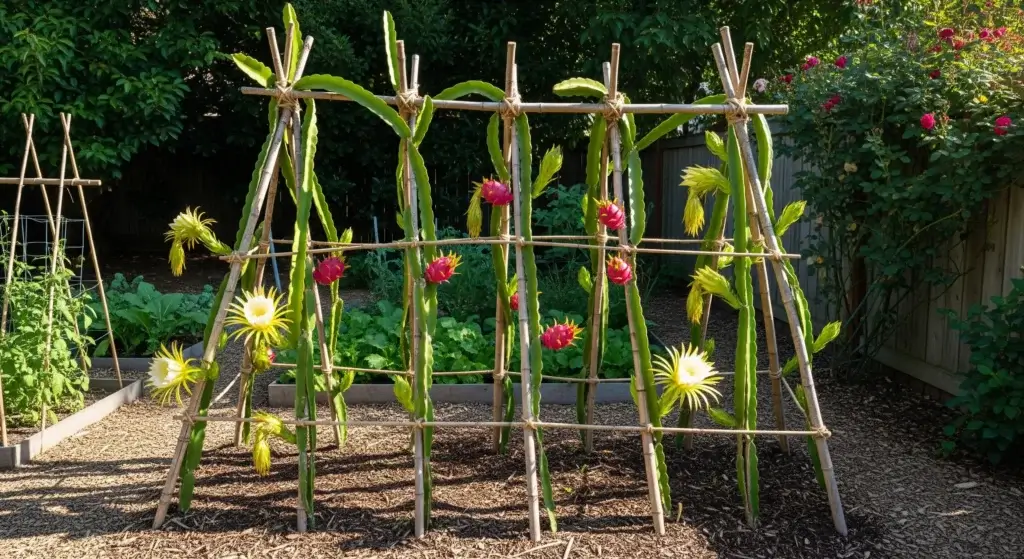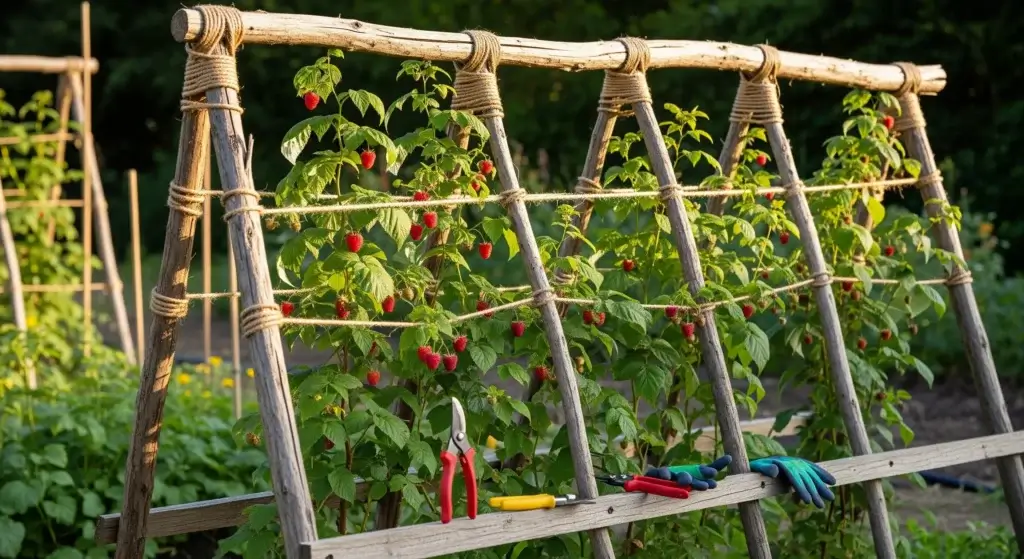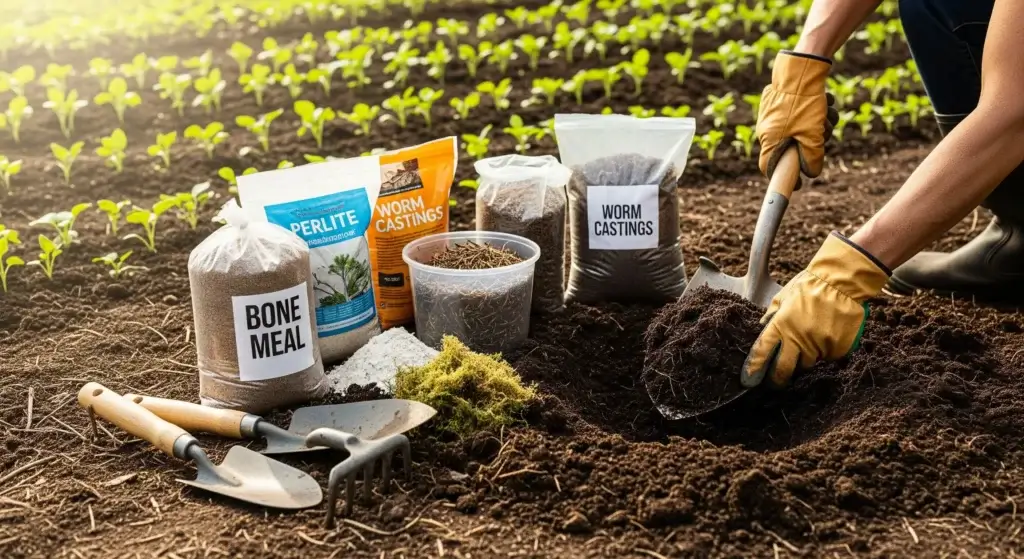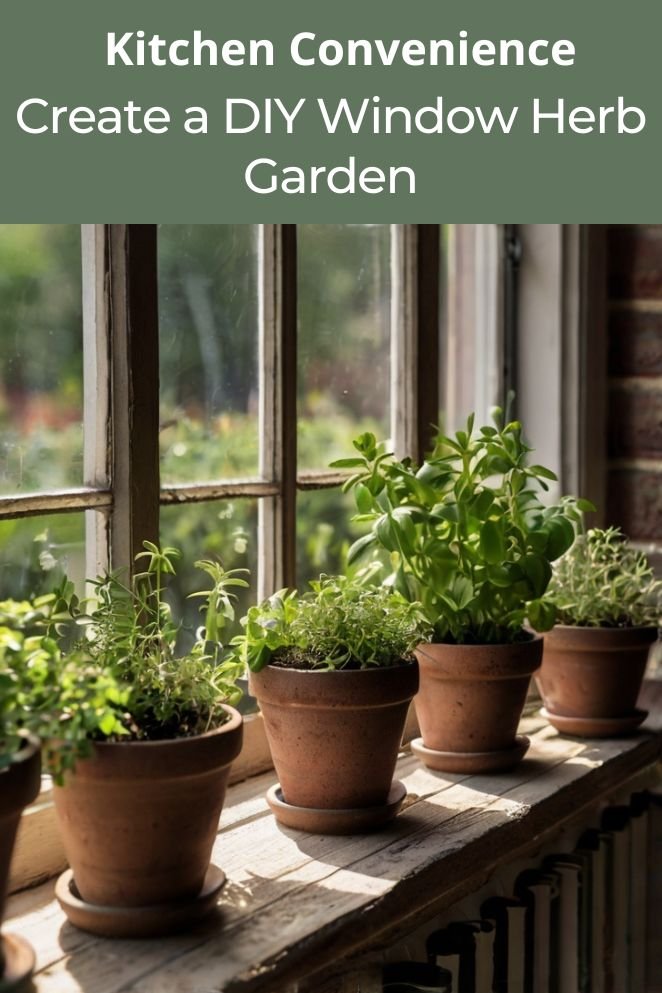
Growing your own herbs can be a rewarding and delicious experience.
With a DIY window herb garden, you can enjoy fresh herbs year-round, even in the dead of winter.
In this article, we will guide you through the process of planning and building your own window herb garden, providing you with the necessary steps and tips to ensure success.
Planning Your Window Herb Garden
Before you begin setting up your window herb garden, it’s important to consider a few key factors to ensure your herbs thrive:
Choosing the right herbs
Select herbs that are well-suited for indoor growing and share similar environmental needs.
Popular choices include basil, mint, parsley, rosemary, thyme, and oregano.
These herbs are adaptable to indoor conditions and can flourish with proper care.
- Read also: From Trash to Table: DIY Container Ideas For Herbs
- Read also: Grow Your Own! A Guide to DIY Herb Garden For Beginners
Picking the perfect window
Opt for a window that receives direct sunlight for at least 4-6 hours daily.
Herbs need sunlight to grow strong and flavorful.
If direct sunlight isn’t possible, you can still grow herbs in a window that gets indirect sunlight, though they may grow more slowly.
Selecting containers
Use containers that are at least 6-8 inches deep and have drainage holes to prevent overwatering.
Plastic, clay pots, or wooden planters all work well.
Before planting, ensure your containers are clean and free from any residue that could harm your herbs.
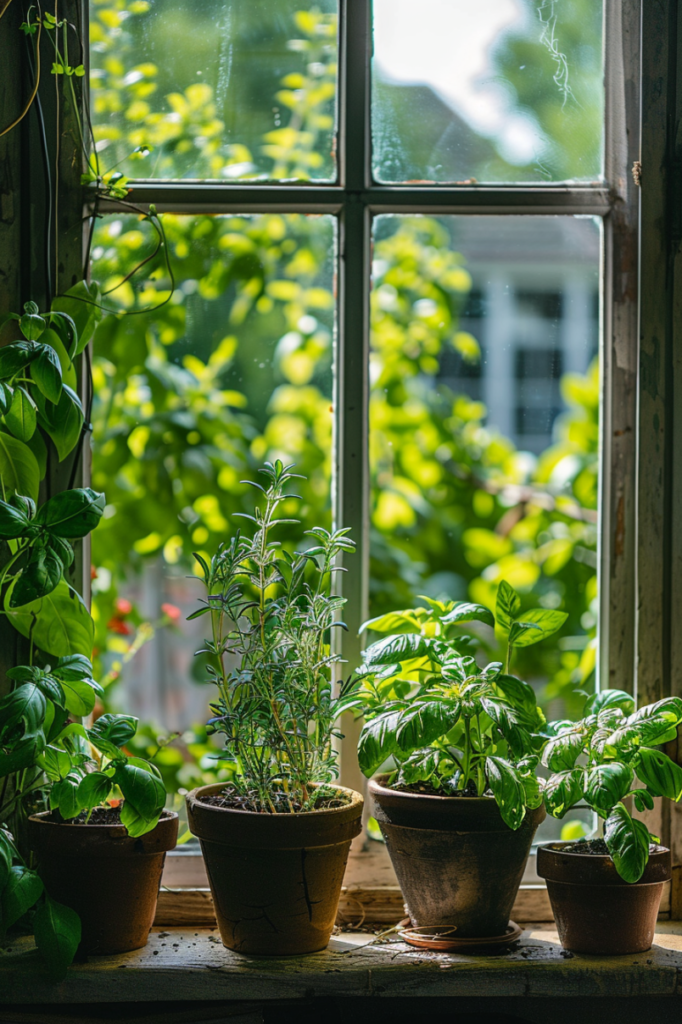
Building Your Window Herb Garden (Step-by-Step Guide)
Materials List (tailor to container choice)
- Containers (plastic or clay pots, or wooden planters)
- Potting mix
- Herbs (choose from the list above)
- Water
- Fertilizer (optional)
- Pruning shears
- Measuring tape
- Drill (for creating drainage holes)
Instructions
Creating a window herb garden is a straightforward and rewarding project.
Follow these detailed steps to ensure your herbs thrive:
Prepare your containers
Begin by washing your containers with soap and water to remove any dirt or debris.
This step ensures a clean environment for your herbs to grow.
If you like, you can personalize your containers by painting them with non-toxic paint before proceeding.
Create drainage holes
Check if your containers already have drainage holes.
If not, use a drill to create small holes in the bottom of each container.
Proper drainage is crucial to prevent water from accumulating and causing root rot, which can harm your herbs’ growth.
Fill containers with potting mix
Fill each container with a quality potting mix designed for herbs.
Leave about an inch of space at the top of each container to facilitate watering.
Potting mix is specially formulated to provide the right balance of nutrients and drainage for herbs grown in containers.
Planting your herbs
Carefully remove each herb from its original pot and gently loosen the roots.
Plant the herbs in your containers, spacing them approximately 2-3 inches apart to allow room for growth.
Plant them at the same depth as they were in their original pots to ensure they establish well in their new environment.
After planting, water the herbs thoroughly to help them settle into their new homes.
Watering and initial care
Water your herbs immediately after planting, ensuring the soil is evenly moist but not waterlogged.
Check the soil regularly and water when the top inch feels dry to the touch. Proper watering is essential for healthy herb growth.
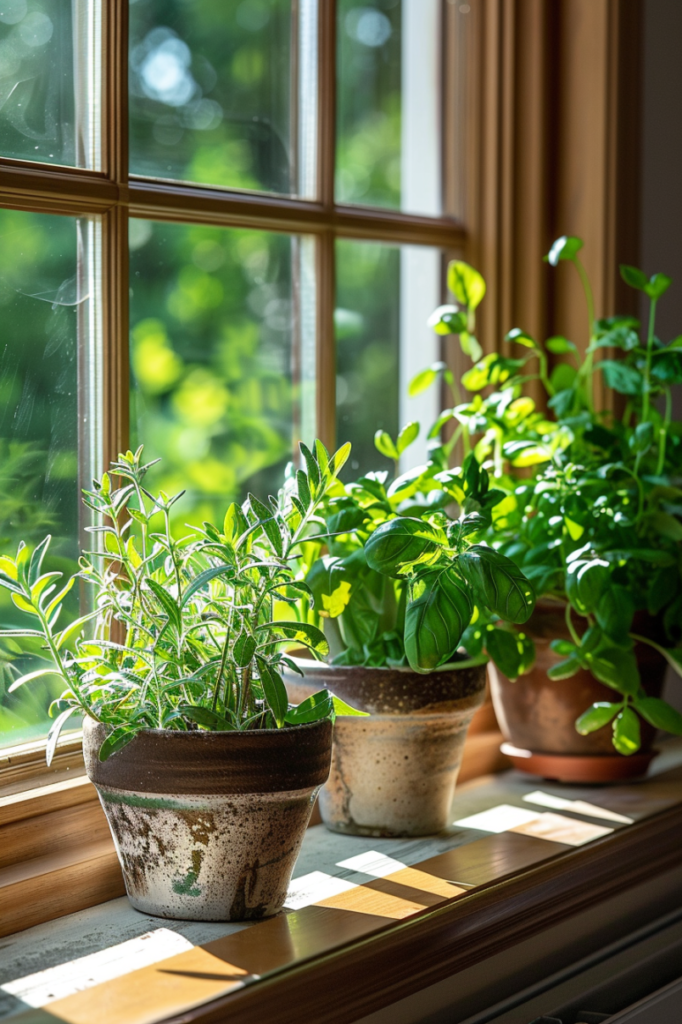
Caring for Your Herb Garden
Taking care of your herb garden ensures healthy growth and abundant harvests. Here are detailed tips to help you maintain your herbs effectively:
Watering tips
Frequency
Check the soil moisture regularly by feeling the top inch of soil.
Water your herbs when this top layer feels dry to the touch.
Depending on your indoor conditions and the season, this might mean watering every few days to once a week.
Amount
When watering, aim to moisten the soil thoroughly but avoid waterlogging.
Ensure water reaches the roots by watering gently and evenly across the container.
Drain excess water from the saucer to prevent roots from sitting in water.
Sunlight requirements
Direct sunlight
Most herbs thrive in direct sunlight for 4-6 hours daily.
Place your herb garden in a south-facing window or any window that receives ample sunlight.
Rotate the containers occasionally to ensure even light exposure and prevent uneven growth.
Supplemental light
If your window doesn’t get enough sunlight, especially during winter months, consider using grow lights.
Position the lights close to the herbs and set them on a timer for 12-16 hours daily to mimic daylight hours.
Harvesting your herbs
Timing
Harvest herbs when they are at their peak flavor and aroma, typically before they flower.
Pinch or cut off the leaves or stems as needed for immediate use.
Regular harvesting encourages new growth and keeps plants productive.
Technique
Use sharp scissors or pruning shears to make clean cuts just above a leaf node.
This method encourages bushier growth and prevents damage to the plant.
Avoid harvesting more than one-third of the plant at once to ensure continued healthy growth.
Pest control (natural methods)
Prevention
Keep your herb garden healthy by maintaining good airflow and avoiding overwatering, which can attract pests.
Natural remedies
For pest control, opt for natural methods like:
- Neem oil: Effective against a variety of pests, neem oil is safe for herbs and helps deter insects.
- Insecticidal soap: Kills soft-bodied pests like aphids and spider mites on contact without harming plants.
- Horticultural oil: Suffocates pests like scales and mites by coating them, disrupting their ability to breathe.
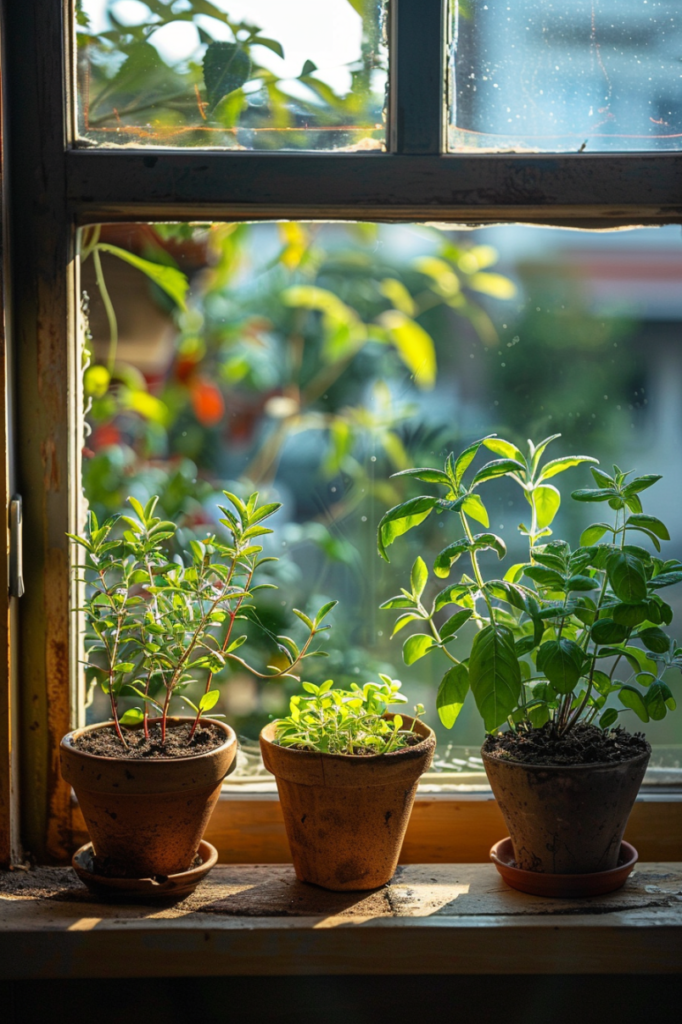
- Read also: Grow Fresh Herbs: Create Your Own DIY Hydroponic Herb Garden
- Read also: DIY Herb Spiral Garden: The Perfect Solution for Small Spaces
Conclusion
Growing a DIY window herb garden is a fun and rewarding experience.
By following these steps and tips, you can enjoy fresh herbs year-round, even in the dead of winter.
Remember to choose the right herbs, pick the perfect window, and select the right containers.
With proper care and maintenance, your herb garden will thrive and provide you with a constant supply of fresh herbs for your favorite recipes.

